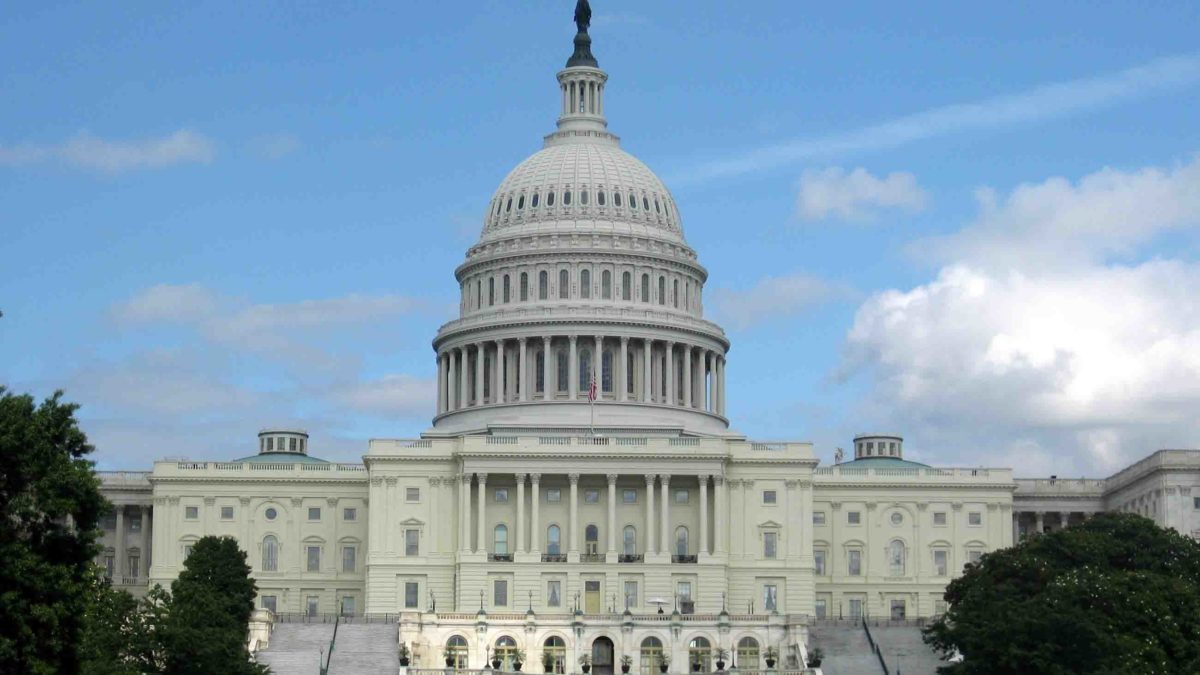The Trump administration is inching toward its goal of shrinking the Environmental Protection Agency by 20 percent, with 700 employees — including 200 scientists and nearly 100 environmental protection specialists — leaving the agency since the president took office last January. Dozens of attorneys, program managers, and department directors have also departed, and the White House has indicated that most of these will not be replaced.

Since Donald Trump took office, 700 people have left the EPA.
Visual: Wally Gobetz/Flickr
Numerous events have lowered morale at the agency since Trump installed Scott Pruitt as EPA Administrator, including the recent revelation that a Republican research group had been filing Freedom of Information Act requests to obtain the emails of EPA employees who criticized the president. Following the requests, the agency hired a related firm, Definers Public Affairs, to provide what it called “media monitoring” to track news coverage about EPA activities.
In response to criticism from employees, the agency announced that it would cancel its contract with the group earlier this month. But the aggressive realignment of EPA’s core mission under Trump and Pruitt, which has included not just personnel changes, but diligent efforts to loosen environmental protections across the board, continues to alarm a bipartisan array of stakeholders, many of whom see the agency now serving the interests of polluting industries, rather than the American public.
“We’ve spent 40 years putting together an apparatus to protect public health and the environment from a lot of different pollutants,” William Ruckelshaus, who led the agency under both Richard Nixon and Ronald Reagan, told The Washington Post this week when asked about Pruitt’s tenure. “He’s pulling that whole apparatus down.”
Also in the news:
• The U.S. Centers for Disease Control and Prevention recently announced that American life expectancy dropped for the second year in a row. Average life expectancy in the U.S.is now 79 years, compared to 81 in other wealthy countries. A detailed analysis shows that the U.S. took a turn for the worse in 2015. Factors include a lack of easy access to health care, violence fueled by guns, and poor quality of social services, according to the report. (Washington Post)
• Loosening regulations on marijuana might be prompting more pregnant women to use the drug — or at least that’s what many headlines implied in response to a new research letter published this week in the Journal of the American Medical Association. In the letter, scientists report that an analysis of urine tests of 280,000 women in Northern California showed a clear uptick from 2009 to 2016, from about 4 percent to 7 percent, in women testing positive for marijuana at about 8 weeks into their pregnancies. Whether that suggested a reckless disregard for fetal development, or simply that many young women smoked marijuana before they learned they were pregnant, however, was far from clear. “Prenatal use before vs after women realized they were pregnant,” the study’s authors noted, “could not be distinguished.” (JAMA)
• One-hundred days after Hurricane Maria hit Puerto Rico, the island continues to struggle and residents say the situation is not improving. Several analyses done earlier this month put the death toll at over 1,000. Officials and residents say half of the island is still without power and many people lack access to clean water and medicine. (Newsweek)
• For the first time since the measles vaccine was introduced in the 1960s, annual deaths from the disease have fallen below 100,000 globally. The World Health Organization estimates that vaccination resulted in an 84 percent drop in deaths between 2000 and 2016, preventing an estimated 20.4 million deaths, a large percentage of them in poor and developing countries. (New York Times)
• A meta-analysis published Tuesday in the Journal of the American Medical Association raises new questions about the effectiveness of calcium and vitamin D supplements in preventing bone breaks and hip fractures in older adults. The study concludes that supplements have no clear benefits in healthy adults over 50, echoing earlier reports that have found insufficient evidence to support the use of supplements in older adults without osteoporosis or vitamin D deficiency. (Reuters)
• And finally: The World Health Organization plans to classify excessive video-game playing as a mental disorder in the next edition of its International Classification of Diseases, to be published in 2018. According to a draft of the new entry, gaming disorder can be diagnosed if “gaming takes precedence over other life interests.” Vladimir Poznyak, a WHO specialist in mental health and substance abuse, explained: “Most people who play video games don’t have a disorder, just like most people who drink alcohol don’t have a disorder either. However, in certain circumstances overuse can lead to adverse effects.” (New Scientist)










